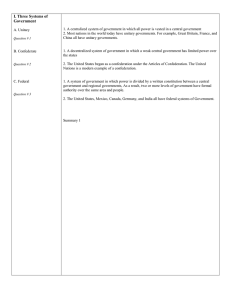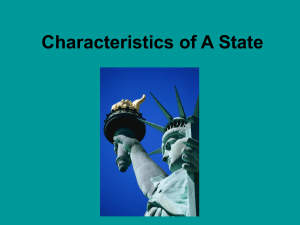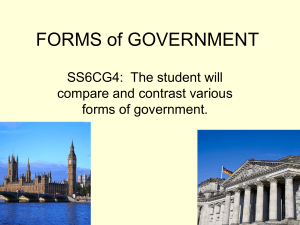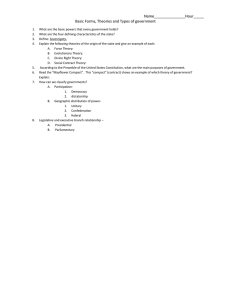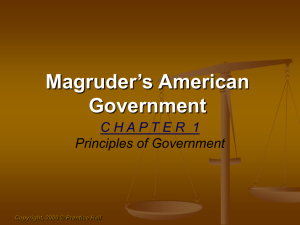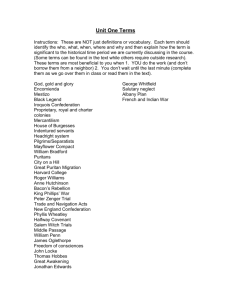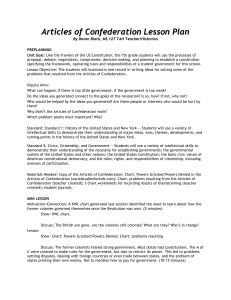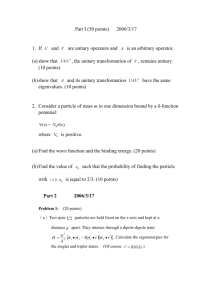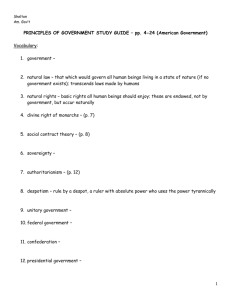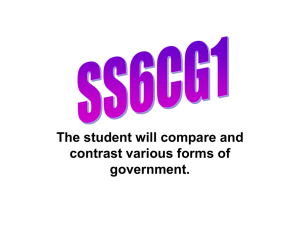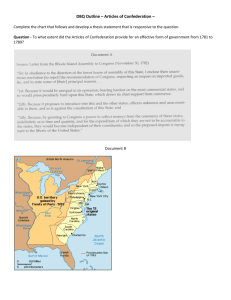There are three ways that government systems distribute power.
advertisement
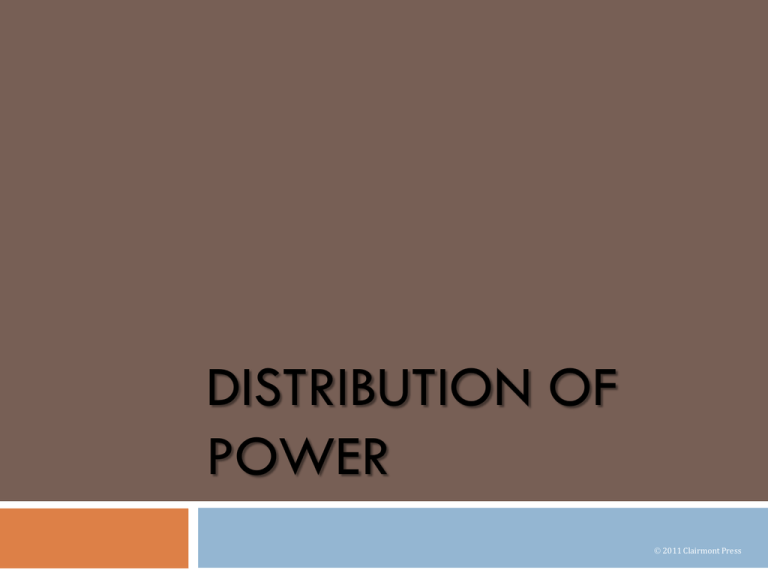
DISTRIBUTION OF POWER 2011 Clairmont Press Distribution of Power Governments can be classified based upon how they distribute power between central and local governments. There are three ways: Unitary Confederation Federal Unitary Central government has almost all of the power Local governments are under control of the central government Examples: absolute monarchy – where a king and his advisors make all the decisions Unitary Power is held by the central government Local Government Local Government Central Government Local Government Local Government Confederation • • • Local governments hold all of the power Central government depends on the local governments for its existence; the central government only has as much power as the local government is willing to give it Example: United Nations Confederation Power is held by the local governments Local Government Local Government Central Government Local Government Local Government Federal Power is shared between the national government and local governments. The states have some powers that the national government does not have, and the national government has some powers that the state governments do not have. Federal Power is shared between the national government and local governments. Local Government Local Government National Government Local Government Local Government
